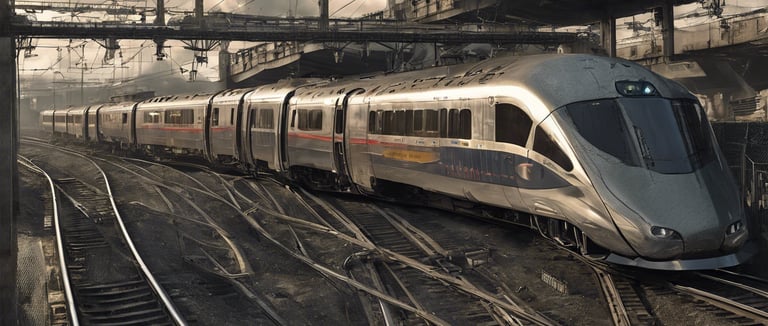The future of passenger rail in New Zealand is regional rail
Intra/inter regional passenger rail is a sustainable, environmentally friendly way of moving people around the country for work, conventions, tourism, education, business, leisure, visiting friends/family and creating regional economic growth.
REGIONAL PLANSTHE FUTUREINFRASTRUCTUREREGIONAL RAILPUBLIC TRANSPORTPOLICY
Chris McKellar
7/22/20252 min read


Between 1936 and 1978, Aotearoa New Zealand had a national regional passenger rail network covering 14 of the 16 regions from Opua in the North Island to Invercargill in the South Island. The network used a fleet of 50 bidirectional diesel-powered railcars, consisting of fifteen 48 to 52 seat single carriage units and thirty-five 88 seat articulated twin carriage units. These operated on regional, inter-regional and main line routes, complementing long distance passenger train services at the time.
Currently, 13 of the 16 regions in New Zealand have rail connectivity with a potential catchment of approximately 84% of the country's population, with nearly 90% of Kiwis living within fifteen minutes of a current or former rail station site on Kiwirail’s current rail network. That’s about 4.4 million people. The country population size and the places where most people live support reviving intra/inter regional and longer distance passenger train services.
Add in the changes to the Land Transport Management Transport Act 2003 in 2023. This allows regional councils to work together on inter-regional public transport projects. The rollout of Motu Move - national 'tap & travel' payment system in 2024, sets the framework for the re-introduction of 'frequent' metro (Christchurch and Dunedin), intra and inter-regional passenger rail services between Whangarei and Bluff, Hamilton, Rotorua and Tauranga, Napier/Hastings, Whanganui and New Plymouth and Christchurch, Westport and Hokitika and most communities in between. This would use a standardised fleet of next generation, bidirectional, bi-mode 1-5 carriage passenger train sets connecting with local metro bus/train, regional 'public transport' buses and commercialised long distance coach services.
The re-introduced intra and inter regional passenger rail services would be a 'design, build, finance, maintain and operate' (DBFMO) public/private partnership on a 20 to 25 year agreement with an option, should the government decide, to buy out the agreement.
The agreement would also include building two heavy maintenance facilities (one in the North Island and one in the South Island), four regional maintenance and stabling facilities and ten regional stabling facilities, training of train crews and maintenance personal, five yearly train refurbishments and technology upgrades over the duration of the agreement. building of environmentally friendly fuel infrastructure, upgrading and rebuilding of railway stations across the regional passenger rail network.
The national regional passenger rail fleet would be jointly owned by the reformed New Zealand Railways Corporation, a statutory corporation and the various private contractors through the creation of a joint venture partnership entity.
Since intra/inter regional passenger rail services would operate as 'public transport' service's, funding would come from the new national public transport development and funding agency using of funds from the National Land Transport Fund, fares from the national contactless 'tap and travel' payment system and from tailored funding solutions based on a regional council public transport plans and the region's population density and rate payer base.
Come on New Zealand, let’s think and plan for 2040 not 1990. Intra/inter regional passenger rail is a sustainable, environmentally friendly way of moving people around the country for work, conventions, tourism, education, business, leisure, visiting friends/family and creating regional economic growth.
Chris McKellar is a long-time advocate for better passenger transport in New Zealand. More information can be found at https://www.publictransportforum.nz/
